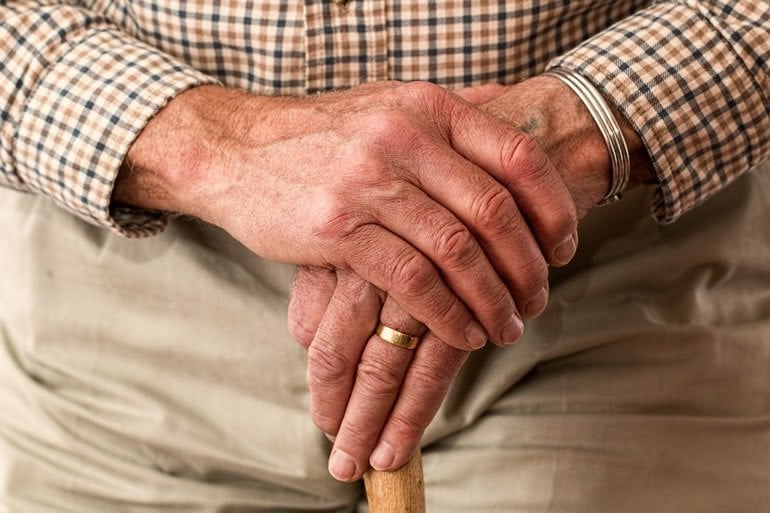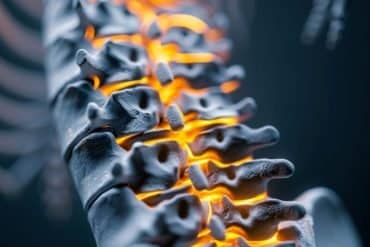Summary: Handgrip strength correlates with cognitive function, attention, and psychomotor function in older men. No association was found between muscle mass and cognitive function.
Source: Deakin University
Research is showing a strong link between handgrip strength, walking speed and cognition, indicating how improved physical health could boost elderly minds.
Based at Barwon Health, in the heart of Geelong’s clinical health precinct, researchers are working to identify the risk factors – such as changes in muscle mass, muscle strength and physical performance – for developing sarcopenia (loss of muscle mass, strength and function with advancing age) across the lifespan.
This testing involves the Geelong Osteoporosis Study (GOS) which began in the early 1990s, gathering adult participants from the electoral roll in the Barwon Statistical Division. During recent follow-up testing, researchers also measured cognitive function through a computer-based program, in tandem with physical health evaluations.
The computer-based testing looked at cognitive health signifiers to examine psychomotor function, attention, visual learning and working memory, at the click of a mouse.
PhD student Ms Sophia Sui, from the Epi-Centre for Healthy Ageing in the Institute for Physical and Mental Health and Clinical Translation (IMPACT) and Deakin’s School of Medicine, said her result from a study of men over 60 showed a strong relationship between hand grip strength and cognition, in particular psychomotor function. Similarly, usual walking speed, which is indicative of physical function, was associated with psychomotor function, attention, and overall cognition. In contrast, no association was found between muscle mass and cognitive function.

“This research shows that we need to think more about how elderly people can boost their quality of life through something as simple as diet or maintaining physical health,” said Ms Sui.
The parallel decline in cognitive function and loss of muscle strength places elderly people at increased risk of personal injury, poor mobility and loss of independence. Professor Julie Pasco from IMPACT Institute and Head of the Epi-Centre for Healthy Ageing, said this work is vital to understanding additional skeletal muscle health issues, like sarcopenia.
“This is still an evolving picture. It is known that as we age our muscle mass deteriorates – but it’s now been found that muscle strength deteriorates more quickly. Emerging data suggests that loss of a person’s muscle strength may be more important to their overall health than muscle mass.”
“The work that Ms Sui has published shows that loss of muscle strength is not only important for overall physical function, but for cognitive health as well. All this research, including Ms Sui’s work, can be used as an evidence-based way of refining the relatively new definition of sarcopenia.”
Once her PhD has been conferred, Ms Sui is interested in exploring biological markers and factors related to the relationship between skeletal muscle health and brain health. She also said future surveys of the Geelong Osteoporosis Study participants could ultimately inform the public health message.
“If indeed we see that an improvement in muscle strength will help delay cognitive decline, we could use this work to inform public health action – such as asking elderly people to do targeted muscle strengthening exercises, maintain a healthy weight and have a diet containing adequate amounts of protein. More research is required to infer if this would make a difference.”
About this aging research article
Source:
Deakin University
Contacts:
Press Office – Deakin University
Image Source:
The image is credited to Deakin University.
Original Research: Open access
“Muscle strength and gait speed rather than lean mass are better indicators for poor cognitive function in older men” by Sophia X. Sui, Kara L. Holloway-Kew, Natalie K. Hyde, Lana J. Williams, Sarah Leach & Julie A. Pasco. Scientific Reports.
Abstract
Muscle strength and gait speed rather than lean mass are better indicators for poor cognitive function in older men
We aimed to examine muscle strength, function and mass in relation to cognition in older men. This cross-sectional data-set included 292 men aged ≥60 yr. Handgrip strength (kg) was measured by dynamometry, gait speed by 4-metre walk (m/s) and appendicular lean mass (kg) by dual-energy x-ray absorptiometry. Cognition was assessed across four domains: psychomotor function, attention, visual learning and working memory. Composite scores for overall cognition were calculated. Bivariate analyses indicated that handgrip strength and gait speed were positively associated with cognitive function. After accounting for confounders, positive associations between individual muscle (or physical) measures and cognitive performance were sustained for handgrip strength and psychomotor function, gait speed and psychomotor function, gait speed and attention, handgrip strength and overall cognition, and gait speed and overall cognition. In multivariable models, handgrip strength and gait speed independently predicted psychomotor function and overall cognition. No associations were detected between lean mass and cognition after adjusting for confounders. Thus, low muscle strength and slower gait speed, rather than low lean mass, were associated with poor cognition in older men.






